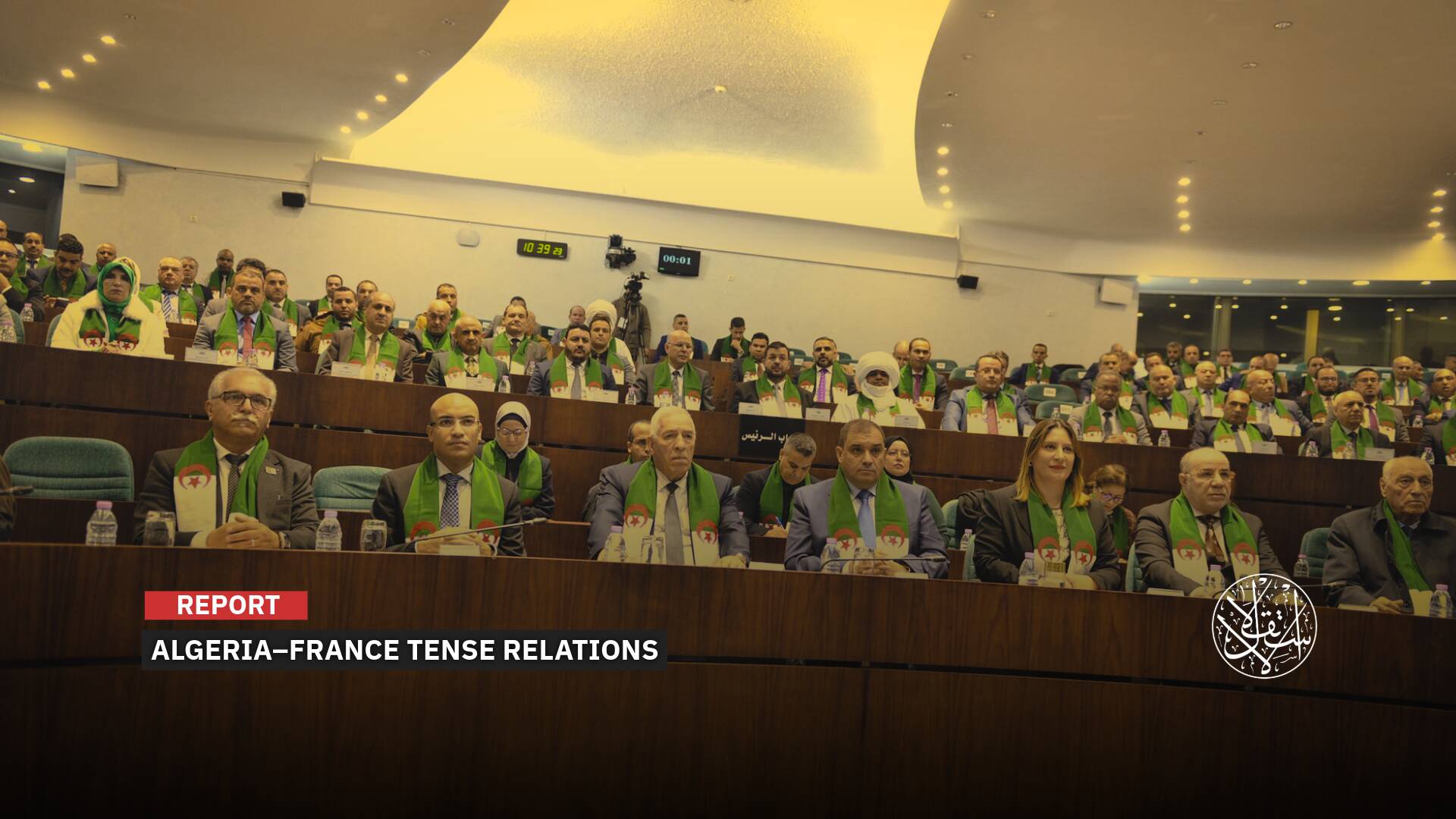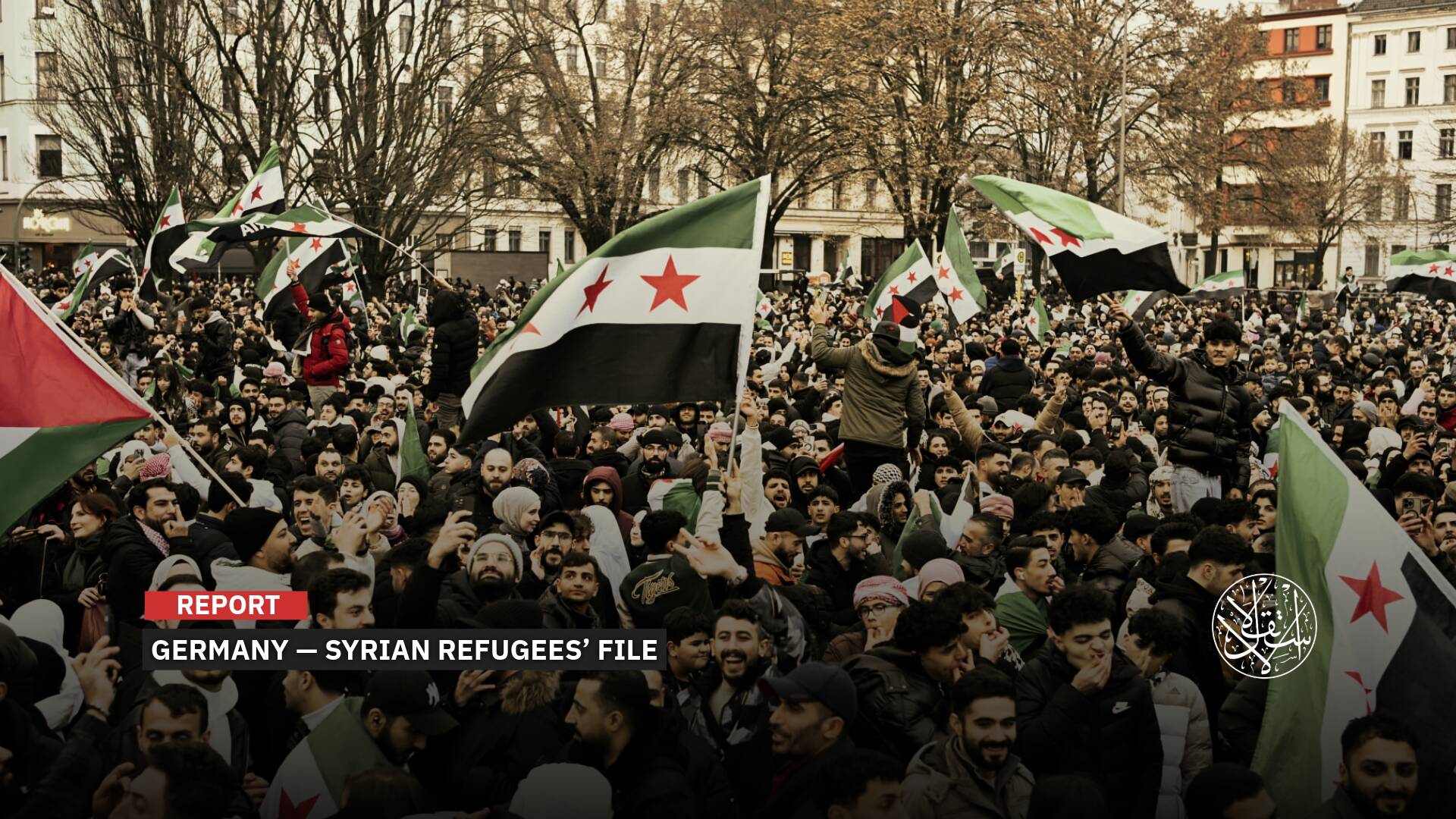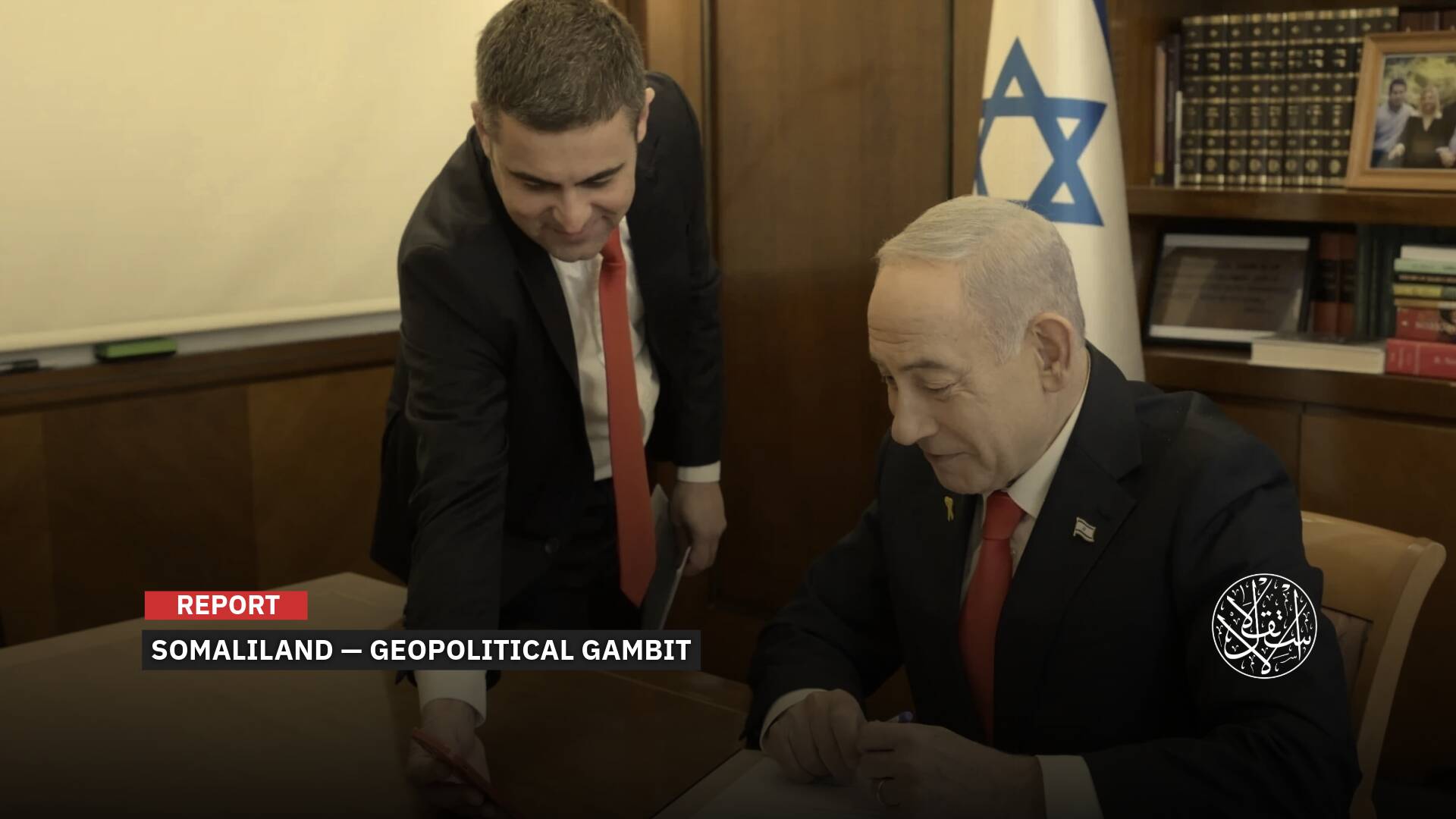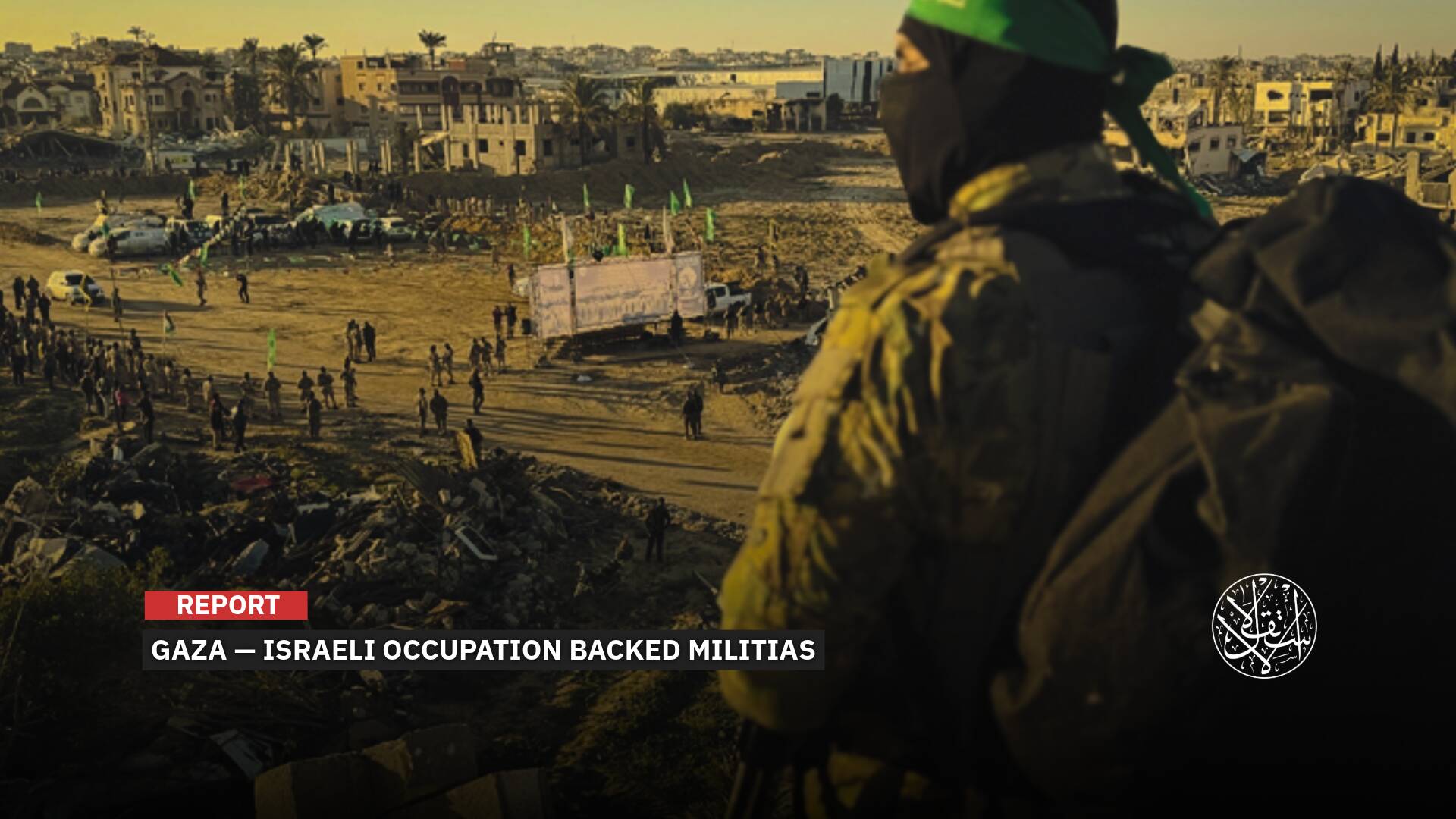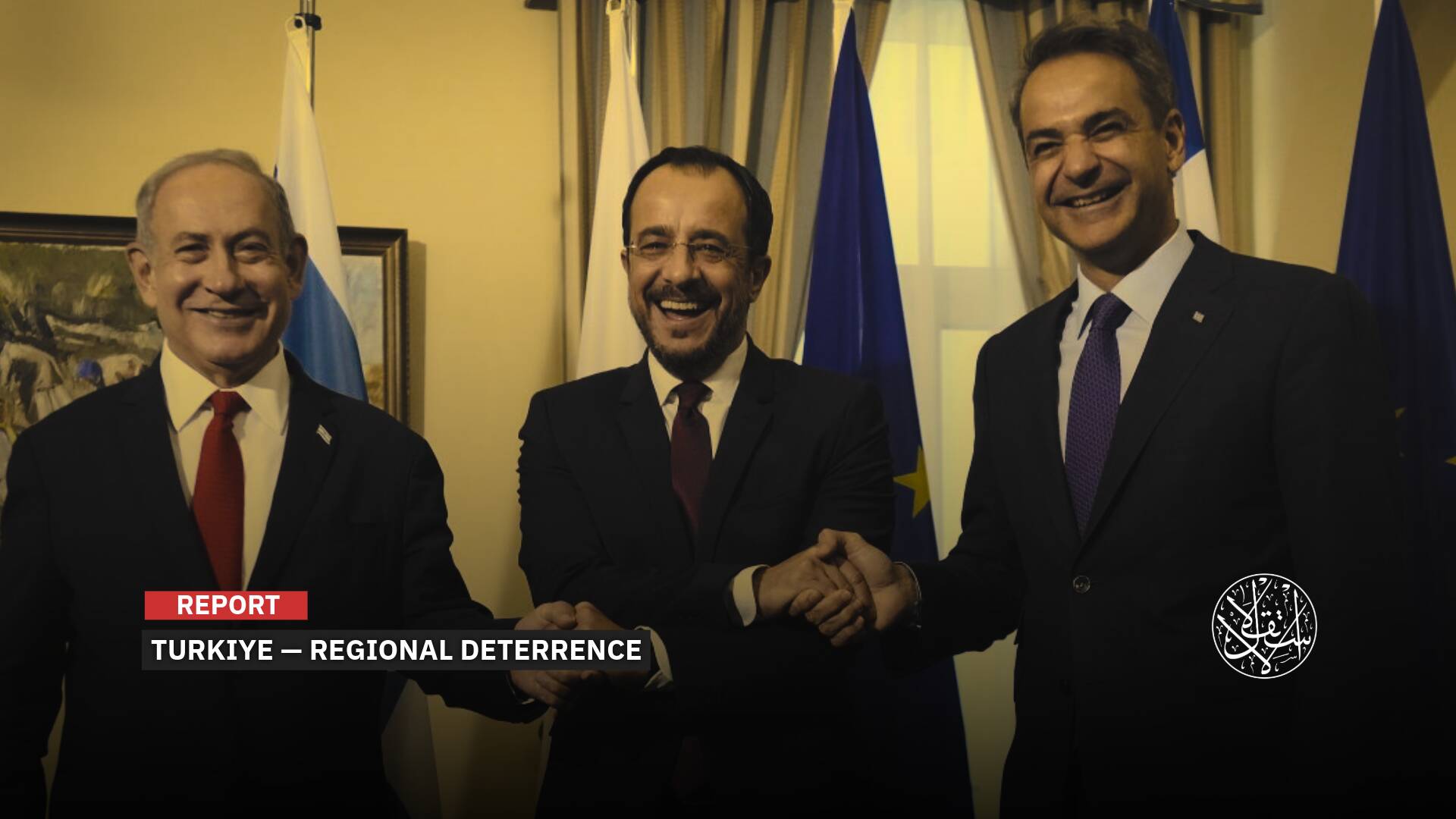Poland Bolsters Its Borders with Thousands of Troops: Assessing the Emerging Threat from Belarus

With the absence of a diplomatic solution to the Ukraine conflict, Poland continues to enhance security control on its borders amidst concerns of sudden repercussions, following the presence of Russian Wagner mercenaries in neighboring Belarus.
The Belarusian semi-military group Wagner has set up a new headquarters since July 2023, with direct support from Minsk. This move comes after Minsk hosted them following their unsuccessful rebellion against the Moscow army.
Border Militarization
In an indicative scene of Belarus' increasing isolation as a key ally of Russia, after hosting the Wagner Group on its territory, Polish Defense Minister Mariusz Blaszczak announced on August 10, 2023, that Poland intends to deploy around ten thousand soldiers to provide a "deterrent" along its eastern borders with the Russian-aligned country.
The Minister told Polish Public Radio that the operation would involve about ten thousand soldiers, with around four thousand of them directly involved in support operations for border police and the remaining six thousand as reinforcements.
Previously, Warsaw had deployed about two thousand military personnel in this region.
As a member of the North Atlantic Treaty Organization (NATO), Poland has recently warned of the risk of provocations coming from Belarus, as well as the potential threats posed by the Wagner Group, especially after Minsk hosted a portion of its fighters on its soil following their unsuccessful revolt in Russia.
The news from Poland, which has been assisting its neighbor Ukraine in facing the ongoing Russian invasion since February 24, 2022, particularly through imposing sanctions on Moscow, indicates its efforts to deter provocative actions against itself via Belarus.
Poland is one of the most financially and militarily supportive countries within the European Union for Ukraine and staunchly opposes Russia. It has welcomed 2.5 million Ukrainian refugees since the start of the Russian invasion.
Belarus borders Lithuania to the northwest and Poland to the west, and both countries have erected fences along their borders with Belarus.
Amid the recent escalation of tension between Belarus and its neighbors Poland and Lithuania, who are considering closing their borders completely, Belarusian President Alexander Lukashenko stated that the Polish government seeks to escalate and exacerbate the situation to show that it has armed the country and re-armed it properly ahead of the legislative elections on October 15, 2023, in Poland.
Lukashenko was quoted by the official BelTA agency on August 11, 2023, as saying, "They demand a lot from us… but we can't accept it, because it would contradict our interests," directly accusing "the Americans of relying on Poland" to stir up tension in the region.
In response, Warsaw believes that the "solution" to end tensions is "simple" but will require Lukashenko to commit to certain "basic conditions."
Polish Deputy Foreign Minister Pawel Jablonski said in a statement to local television Polsat on August 11, 2023, that "if the Belarusian president genuinely wants to improve relations with Poland, he can do so in a very simple way."
He noted that this path lies in "stopping the attack on our borders, releasing over a thousand political prisoners, releasing [the Polish-Belarusian journalist] Andrzej Poczobut, and ending the hate campaign and hybrid warfare against Poland."
After covering massive protests against President Alexander Lukashenko, Andrzej Poczobut, a correspondent for the widely circulated Polish daily newspaper Gazeta Wyborcza, was sentenced to eight years in prison in February 2023.
However, Jablonski saw that "Lukashenko's statements continue to contradict his actions." Warsaw accuses Minsk of practicing political repression against Polish residents in Belarus at a time when Poland has become a hub for Belarusian exiles.
Belarus often specifically accuses Warsaw of posing a special threat, while Warsaw accuses Russia and Belarus of organizing a new influx of migrants into the European Union to destabilize the region.
Pressure on Poland
In this context, the independent Belarusian analyst Valery Karbalevich stated that the Kremlin's main goal is to instill anxiety in Warsaw in order to reduce military support for Ukraine and force Polish politicians into silence and fear of provocations from Russia and Belarus.
Karbalevich clarified to the American Associated Press on August 12, 2023, saying that the Kremlin increases its animosity towards Poland and raises the stakes in the hope that the adversary will either back down or respond differently.
Moscow doesn't particularly like Poland insisting on new sanctions and actively urging Kyiv to support Ukraine's accession to the European Union and NATO, according to Karbalevich.
As an example of threats coming from Belarus, Poland detained two Russian individuals suspected of distributing 300 out of 3000 promotional flyers supporting Wagner in Warsaw and Krakow, Poland's two largest cities, on August 14, 2023.
Polish Interior Minister Mariusz Kaminski posted on X (Twitter), saying that charges have been brought against both of them for espionage, and they have been detained.
The flyers contained links to "online recruitment sites" affiliated with Wagner, which played a leading role in the Russian war on Ukraine.
But it didn't stop there. On August 8, 2023, Warsaw accused Minsk and Moscow of orchestrating a major new wave of migration to destabilize Poland's borders, which form the eastern boundary of the European Union.
According to Polish border guards, 19,000 migrants attempted to enter Poland since the beginning of 2023, compared to 16,000 in the entirety of 2022, with over four thousand migrants attempting to cross Polish borders in July 2023 alone.
Poland serves as a preferred exit for thousands of Belarusian citizens who rely on overland travel to Warsaw to escape an increasingly oppressive regime.
President Alexander Lukashenko violently suppressed historic anti-government protests in 2020 before deciding to aid Russian forces in invading Ukraine, leading to flight bans and border closures.
Western nations imposed a flight ban over Belarus after Lukashenko ordered the diversion of a passenger plane to arrest an activist on board in 2021.
Now, closed airways and railways illustrate how they have become the last open passage for passengers into neighboring Poland, a lifeline for those fleeing Lukashenko's rule or simply seeking a European getaway.
Poland has been a safe haven for Belarusians since the mentioned protests erupted, and official data shows they are now the second-largest foreign nationality in the country after Ukrainians.
In 2020, Poland introduced expedited visas for technologically skilled Belarusians, marketing itself as an "economic democratic haven and a free market."
Despite its controversial immigration record, Poland hosts more Belarusian political refugees than any other country.
Official data shows that the number of Belarusians in Poland since the beginning of 2023 reached 79,030, a threefold increase from before the 2020 protests.
Human rights activists claim around 1,500 political prisoners are currently held in Belarus, indicating a real threat of persecution.
The Allies' Game
It's notable that Belarusian President Alexander Lukashenko claimed during a meeting with his Russian counterpart Vladimir Putin in St. Petersburg on July 23, 2023, that the Wagner Group was pressuring his country with the intention of infiltrating across the borders into neighboring Poland.
He also alleged that they told him, "Let's go on a trip to Warsaw and Rzeszow," referring to the Polish capital and a significant military center in the country.
Lukashenko's words came after footage emerged of Wagner mercenaries training with Belarusian forces on the Polish border. This followed Lukashenko's call, in a speech on June 30, 2023, for Wagner to train his army, according to the official BelTA news agency.
Observers emphasize that the gap known as the Suwalki Corridor (a narrow stretch of about 100 kilometers on the border between Poland and Lithuania and between Belarus and the Russian Kaliningrad Oblast) is the eastern flank of the NATO alliance.
The corridor is considered a vulnerable point, especially with Wagner's presence opposite it, in a clear attempt to increase pressure on NATO and European Union members.
Control over the geography of the area means that the Baltic states of Lithuania, Latvia, and Estonia would be cut off from the rest of the NATO alliance.
In response, the Polish government pledged to establish an expert brigade in the vicinity to strengthen NATO's eastern flank and secure the Suwalki Corridor.
In this context, Barbara J. Falk, a lecturer in International Relations at Lancaster University in Northern England, stated that Warsaw considers Belarus as complicit in the current European security crisis.
Falk added to CNN on August 3, 2023, that if Russia deploys forces in the Suwalki Gap, it is likely to lead to an immediate military response from other NATO countries, which would see this as a direct attack on member states in the region.
Such a move would suggest that Russia is willing to escalate its confrontation with NATO into a full-scale war and risk nuclear escalation from both sides, she concluded.
NATO's Concern
Years ago, American experts from the European Policy Analysis Center spoke about the possibility of Moscow launching an attack on the Suwalki Corridor, with the aim of connecting the Kaliningrad region to the rest of Russia.
According to a report by experts published on November 17, 2019, if such a Russian attack were to occur, NATO would not be able to effectively counter the Russian army. This is because NATO forces are far from the potential theater of operations, while Russia has positioned its forces just minutes away from the Suwalki Corridor.
The experts' report also stated that for Moscow to link Kaliningrad with Belarus through the Suwalki Corridor, it would need to deploy 25 battalions, which equates to 10,000 soldiers.
Poland used to control a significant portion of Central and Eastern Europe as part of a larger political union with Lithuania, including parts of modern-day Ukraine.
However, it lost much of its territory in the 18th century when Russia partitioned it in 1772, 1792, and 1795, leading to irreparable tensions in their relations.
Currently, following the invasion of Ukraine, Putin stated during his meeting with Lukashenko, as mentioned earlier, that it's likely that Polish leaders seek to form an alliance under NATO's umbrella and directly engage in the conflict in Ukraine, and then carve out a bigger piece for themselves and regain their historical lands, as they believe, in western Ukraine today.
Perhaps this explains Poland's acceptance of the German offer in January 2023 to deploy American Patriot missile defense systems on its eastern territories after an explosion in a Polish village late in 2022, believed to have been caused by a stray Ukrainian air defense missile.
Deploying such a large number of Polish soldiers to their borders with Belarus is the latest sign of discomfort among Washington's friends due to the Wagner mercenaries' presence in these countries and the close ties to the Kremlin.
Consequently, Polish concerns have grown even further, and this sentiment has been expressed by officials of the country, especially considering that Poland is the only European state situated on the borders of Russia, Belarus, and Ukraine.
In this context, Poland's ambassador to the United States, Marek Magierowski, told NBC News on August 12, 2023, that it is imperative for his country not only to defend itself but also to protect NATO's eastern flank. He added that the region should prepare for more provocations from Moscow and Minsk in the coming months.
Russian Control
The Belarus-based quasi-military group Wagner has established a new headquarters since July 2023, with direct facilitation from Minsk. This development follows their unsuccessful uprising against the Moscow army, and the presence of Wagner mercenaries in Belarus poses an additional security concern for Lithuania, Poland, and NATO allies.
Consequently, Warsaw strives to remain vigilant and prepared for any potential scenario, as noted by observers.
NATO spokesperson Oana Lungescu emphasized that the alliance has significantly bolstered its defensive presence in the east and continues essential measures to deter any threats, ensuring the protection of every inch of allied territories.
Lungescu pointed out that NATO is closely monitoring all military activities within Belarus. She said that while they do not see any direct or imminent military threat posed by Wagner mercenaries to NATO allies, they remain "vigilant."
In this context, Frank Ledwidge, a prominent lecturer in law and strategy at the University of Portsmouth in the UK and a former officer in British military intelligence, expressed that it remains unlikely that Russia genuinely wants a direct confrontation with Poland and NATO. He added in a statement to NBC NEWS on August 12, 2023, that Warsaw's decision to deploy additional forces to its borders is both reasonable and proportionate, aiming to ease the concerns of citizens living near Belarus.
Poland's ruling right-wing government faces parliamentary elections in October 2023 and is keen to prioritize national security in its public image. In line with this, Kimberly Marten, a political science professor at Barnard College, Columbia University, believes that Vladimir Putin used the movements of mercenaries and their exercises in Belarus as an implicit and enigmatic threat to Eastern NATO members. This compelled them to allocate extra resources for border defense.
Marten further stated to NBC NEWS on August 12, 2023: "Most likely these Russian actions are designed as annoyances: to test NATO readiness, to divert NATO resources and attention from Ukraine and the Black Sea, and maybe to throw a wrench into domestic political discussions in Poland."
It also serves to keep the mutinous Wagner forces busy, Marten added, "giving them a mission outside Russia, but near enough for Russia to watch closely."


